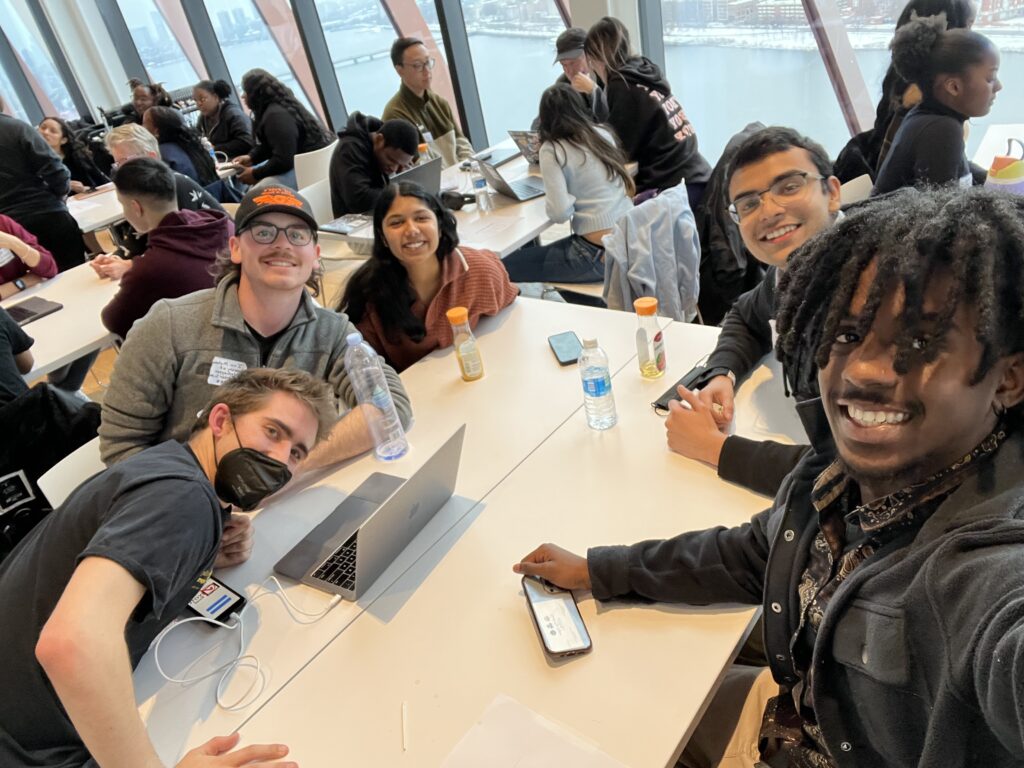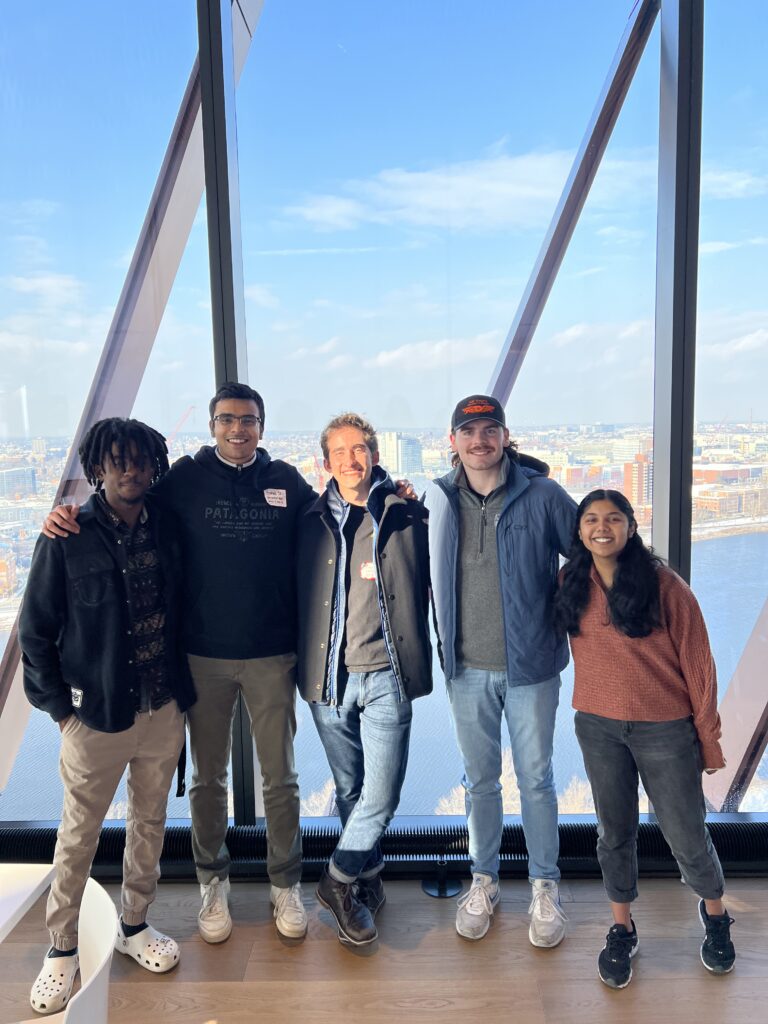
In February, University of Washington student group Impact++ won one of the tracks at the Tech For Change Civic Tech (TFC) Hackathon held at Boston University. The hackathon tasked student teams with building creative solutions in the interest of changing public policy. This year’s competition included three tracks: education, election turnout and government policy rooted in social welfare.
It was the first time Impact++, which focuses on projects combining computer science and social good, has sent a team to the TFC Hackathon hosted by Boston University’s Spark program. The team consisted of: Vrishab Sathish Kumar, a senior studying computer science; Aditi Joshi, a junior majoring in computer science and minoring in environmental studies; Samuel Levy, a senior majoring in computer science and minoring in law societies and justice; and Ian Mahoney, a senior majoring in computer science and minoring in history. Masia Wisdom, a sophomore studying computer engineering at Howard University, also joined the UW team during the first day after meeting the group at the event.
“The hackathon helped me understand that even without formal internship experience or past in-person hackathon experience, our training through the Allen School and Impact++ projects were truly translational to other, perhaps different settings,” Sathish Kumar said. “It was a full-circle experience to see a project come together through teamwork.”
The team’s project tackled the election turnout challenge. Called Vote Real, it provided a gamified platform in which users act as a city council member. Through the platform they could better understand bills being voted on besides the intricacies of the policy-making process. Then users could see how their own city council members voted.
“Over time, this ‘closeness’ metric of how a user voted, opposed to how council members voted, will keep them in the loop,” Joshi said. “Instead of voting for representatives once a year and forgetting about it for the rest, the goal is to keep our leaders accountable.”
The team based its idea on BeReal, a social app gaining popularity among 18 to 24-year-olds. After multiple rounds of brainstorming, the group decided to focus on improving voter turnout in local elections, which historically have lower participation among younger voters.

“We recognized a gap here and wanted to build something to help around this issue,” Sathish Kumar said. “Since we are in the same shoes as our target audience, we thought about what mattered to us, what motivated us and the mediums that we thought were most effective in doing so.”
Since its formation in 2018, Impact++ has provided opportunities for students to gain hands-on experience and build connections with industry mentors through social-good projects. The student-run organization runs five to six annual projects, Sathish Kumar said, with support from mentors from local tech companies and startups.
Experiences like the TFC Hackathon, for instance, can broaden perspectives. For several of the team members, participating helped them think more deeply about technology’s role in society.
“I had not really thought too much about the topic of creating social and policy change through tech and computing before the TFC Hackathon,” Mahoney said. “Through the hackathon and our project in particular, I realized there are spaces in which technology can really have an impact in creating these changes.”
There was also time for fun. Less so for sleep. Between making presentation slides and games of Jeopardy and Kahoot, the hours flew by in a whirlwind of creating and camaraderie.
“In the morning, we were so delirious after staying up most of the night that we spent a solid 30 minutes crying with laughter,” Levy said. “None of us could figure out why.”
After more than 30 hours of hacking, it was the only answer that eluded the team.

